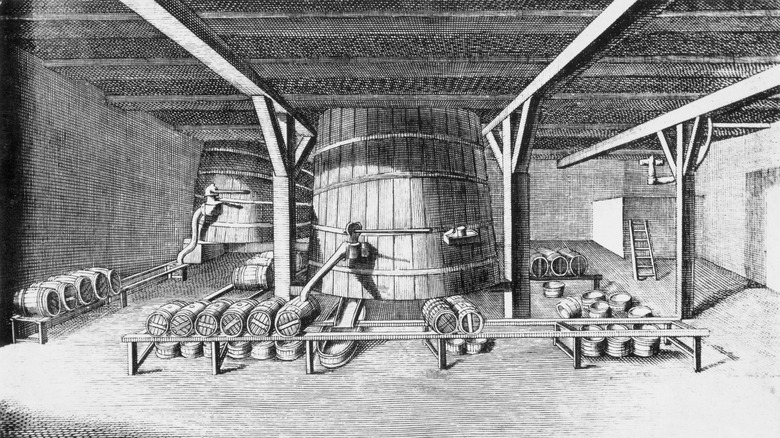What Did The Founding Fathers Do In Their Spare Time? A Whole Lot Of Beer Brewing, Apparently
Passengers aboard the Mayflower lamented the dwindling supply of beer aboard the vessel, a move that partially contributed to the Plymouth Rock landing. After arriving, the thirsty settlers figured out how to brew beer from maize, and by 1770, there were so many breweries and experienced brewmasters that a proposed boycott of imported English beer nearly took place.
George Washington was known to celebrate success with ale and appreciated porter. Washington was a frequent buyer of beer from other colonies and made porter-style ale at Mount Vernon. His recipe included a substantial amount of molasses, and the handwritten instructions can be found at the New York Public Library.
As battles within the Revolutionary War continued, beer once again began to run dry, and Washington wasn't thrilled. The Commander took it upon himself to go directly to Congress to ensure troops had alcoholic beverages to sip. Washington went to bat for troops fighting in the Revolutionary War, advocating that each soldier have the option to sample a quart of beer daily. His declaration that troops got a daily beer allowance was one of Washington's first acts when named Commander of the Continental Army.
Beer predated the Constitution
Washington enjoying the liquid goods brewed at his Mount Vernon Brewery wasn't the only notable figurehead who had a taste for cold ones. Presidents Thomas Jefferson and James Madison were also advocates of all things beer.
At the time, "small beer" was used to reference beer that was brewed at home, a term that came to distinguish brews that ran lower in alcohol than "strong beers," the type of stuff that was made commercially. Thomas Jefferson learned how to brew from his wife and began brewing a family-inherited recipe before tinkering with ingredients to create different kinds of beers.
Jefferson is rumored to have written an initial draft of the Declaration of Independence while sipping a draft at a Philly tavern, and taverns often served as gathering points for significant meetings. Finally, James Madison not only proposed a national brewery but also an official title known as the Secretary of Beer — the kind of political position many Americans could agree upon.

